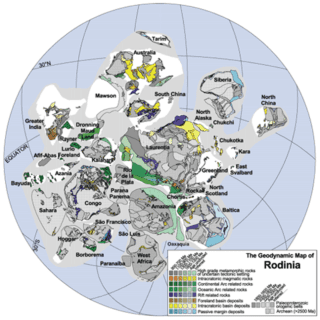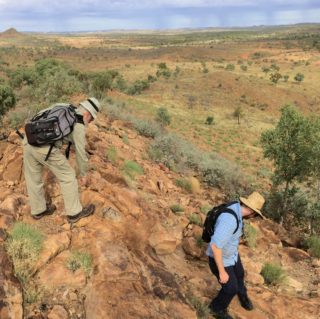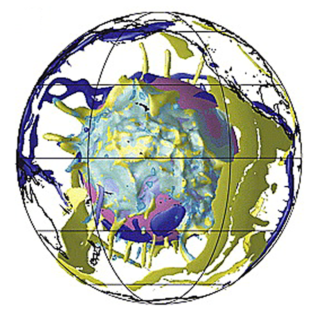Research
Major research streams:

Palaeomagnetism, global palaeogeography, and true polar wander (TPW) events
We aim to establish a continuous global palaeogeography for the past 2,000 million years through a combined palaeomagnetic and geological (including data-mining) approach, and identify possible TPW events that are important for the examination of geodynamic models.
We acquire high-quality palaeomagnetic poles for key time intervals (filling time gaps) on targeted continents around the world (PhD projects available). We are also establishing a GIS-based, and user-friendly, Global Palaeomagnetic Database.
Key Researchers: Dr Yebo Liu, Dr Sergei Pisarevskiy, Prof. Zheng-Xiang Li.

Field-based geological studies
We have a number of field-based research programs aiming to;
- Apply key constraints for the reconstruction of supercontinents Nuna (the northern Queensland project) and Rodinia (Australia-China-Laurentia comparative studies), and
- Improve the global plume record so to test the superplume-supercontinent coupling (or otherwise) hypothesis.
Field-based studies are augmented by the establishment of global geotectonic and mineral databases through IGCP 648, and data-mining. We also have collaborative research projects on and around Tibet and other parts of the world .
Key Researchers: Dr Luc Doucet, Dr Hamed Gamal El Dien, Prof. Zheng-Xiang Li.
PhD students: Mr Jiangyu Li, Mr Daniel Brennan Ms Yuchi Cui.

Geodynamic modelling
We integrate all available information and outcomes from the other Research Streams to formulate, test, refine and quantify geodynamic models (the Earth’s inner workings) at both the global (first order) and the plate (second order) scales (PhD projects available).
Key Researchers: Dr Chuan Huang in collaboration with all other team members and external collaborators.
